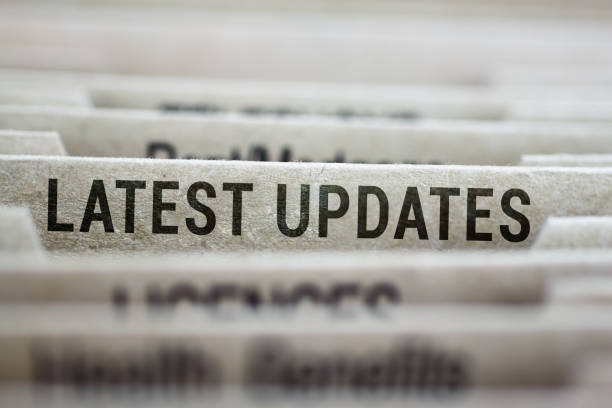BISP 8171: Your Path to Financial Assistance

In a world where economic disparities often create barriers to basic necessities, social protection programs play a pivotal role in ensuring a safety net for the most vulnerable. Pakistan, with its diverse socio-economic challenges, has initiated several measures to address poverty and uplift the underprivileged. Among these, the Ehsaas Program stands out as a beacon of hope and progress. Central to this initiative is the BISP 8171 registration system, which has revolutionized the way aid is delivered to those in need.
Understanding the Ehsaas Program
The Ehsaas Program, launched by the Government of Pakistan, is an umbrella initiative aimed at alleviating poverty and providing social security to the marginalized segments of society. The term “Ehsaas” translates to “compassion,” encapsulating the program’s core mission to foster a more inclusive and empathetic society. Launched in March 2019, Ehsaas encompasses a wide range of schemes, including cash transfers, food aid, health services, education, and skill development.
One of the key aspects of the Ehsaas Program is its comprehensive approach to poverty alleviation. Unlike traditional welfare programs that often focus on one-dimensional assistance, Ehsaas addresses multiple facets of deprivation. It aims to create opportunities for economic empowerment, promote social inclusion, and enhance human capital. The program is structured to ensure that the benefits reach those who need them the most, including women, children, the elderly, and persons with disabilities.
BISP 8171: A Gateway to Financial Inclusion
The Benazir Income Support Program (BISP), a critical component of Ehsaas, focuses on providing financial assistance to the poorest families in Pakistan. Established in 2008, BISP has undergone significant transformations under the Ehsaas umbrella to enhance its efficiency and outreach. The BISP 8171 registration system is a testament to these efforts.
BISP 8171 is a dedicated SMS-based registration system designed to facilitate easy access to financial aid. The number “8171” serves as a helpline and registration portal, enabling eligible individuals to apply for assistance from the comfort of their homes. This innovative approach not only streamlines the application process but also minimizes bureaucratic hurdles that often deter the needy from seeking help.
How to Register for BISP 8171
Registering for BISP 8171 is a straightforward process. Applicants need to send their Computerized National Identity Card (CNIC) number to the designated SMS code, 8171. Once the message is sent, the system automatically verifies the eligibility of the applicant based on pre-defined criteria. If eligible, the applicant receives a confirmation message and instructions for further steps, including document verification and disbursement of funds.
The simplicity of the BISP 8171 registration system is a significant step towards financial inclusion. It ensures that individuals in remote and underserved areas can access government assistance without having to navigate complex bureaucratic procedures. This system has been particularly beneficial for women, who often face mobility constraints and cultural barriers in accessing formal channels of support.
Impact of Ehsaas and BISP 8171
The impact of the Ehsaas Program and the BISP 8171 registration system has been profound. Millions of families across Pakistan have benefited from the financial aid, enabling them to meet their basic needs and improve their quality of life. The cash transfers provided under BISP have been instrumental in reducing poverty, enhancing food security, and promoting economic stability.
One of the notable achievements of the Ehsaas Program is its focus on women empowerment. By ensuring that women are the primary recipients of financial aid, the program not only addresses immediate needs but also promotes gender equality. Women who receive BISP assistance are more likely to invest in their children’s education and health, leading to long-term socio-economic benefits for their families.
Furthermore, the Ehsaas Program has introduced several complementary initiatives that amplify its impact. These include the Ehsaas Kafalat Program, which provides monthly stipends to deserving women, and the Ehsaas Nashonuma Program, aimed at addressing malnutrition among children and pregnant women. The program Bisp 8171 also supports educational scholarships, skill development, and interest-free loans for small businesses.
Challenges and Future Prospects
Despite its successes, the Ehsaas Program and BISP 8171 face several challenges. Ensuring accurate targeting and avoiding duplication of beneficiaries remain critical issues. The reliance on digital platforms, while efficient, also raises concerns about accessibility for those who lack technological literacy or infrastructure.
To address these challenges, the government continues to invest in data validation and integration of advanced technologies. The introduction of the Ehsaas Digital Payment System is a step towards greater transparency and accountability. This system allows beneficiaries to receive payments directly into their bank accounts, reducing the risk of fraud and ensuring timely disbursement of funds.
Looking ahead, the future prospects of the Ehsaas Program and BISP 8171 are promising. With ongoing reforms and enhancements, these initiatives have the potential to create a more equitable and inclusive society. The government’s commitment to expanding the scope of social protection and integrating innovative solutions is a testament to its dedication to uplifting the lives of the most vulnerable.
Conclusion
The Ehsaas Program and the BISP 8171 registration system exemplify the power of social protection in transforming lives. By providing a lifeline to the poorest families, these initiatives have paved the way for a brighter and more equitable future. As Pakistan continues to navigate its socio-economic challenges, the commitment to compassion and inclusivity embodied in Ehsaas will remain a cornerstone of its journey towards prosperity.
